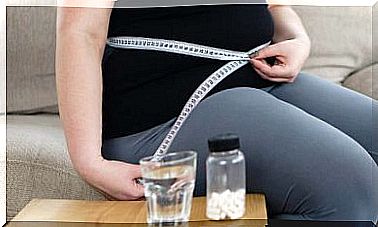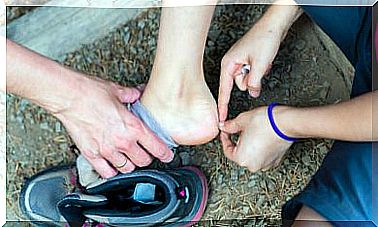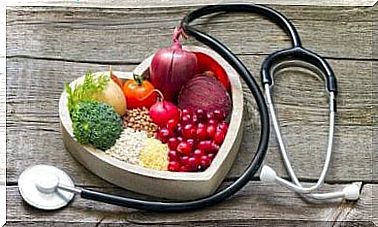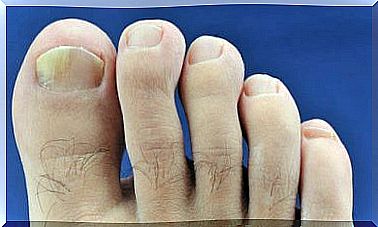Coffee Or Tea Can Help The Liver
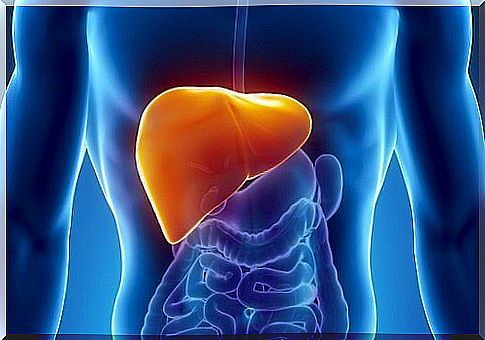
It’s so nice to start the day with the taste of coffee in your mouth, this first cup gives you the impetus to face the difficulties of the journey. The same happens in the afternoon, when a delicious and hot tea restores strength and spirit after so much work.
What a pity that these habits are harmful to health! True? Well, it seems there is good news for those who enjoy tea and coffee.
They do not believe? Well, read on and we’ll explain in this article how coffee in the morning and tea in the afternoon can benefit the liver.
Caffeine: Myths and Truths
It’s no secret that the relationship between human health and coffee and tea intake has been a very controversial topic in recent decades, as these products contain a high concentration of caffeine; an alkaloid of the xanthines group that has stimulating effects on the autonomic nervous system and the heart.
Caffeine can also be found in yerba mate, guarana, cocoa, kola nut, energy drinks and numerous commonly used medications.
Almost everyone knows that coffee stimulates wakefulness and resistance to tiredness, as well as being a powerful vasodilator; but what is real and uncertain in everything that is said about the subject?
The good news is that it has been scientifically proven that if taken in adequate doses, caffeine is useful to treat certain conditions such as headaches, bronchial asthma and gallstones.
However, don’t be so happy, because if consumed in excess it can be harmful to your health, causing dependence, headache, cardiac arrhythmia, insomnia and anxiety.
So is drinking coffee and tea good or bad? It all depends on the person and the amount consumed daily. According to experts, the healthy intake of coffee is 3 or 4 small cups a day, while you can drink up to 5 cups of tea or energy drinks daily.
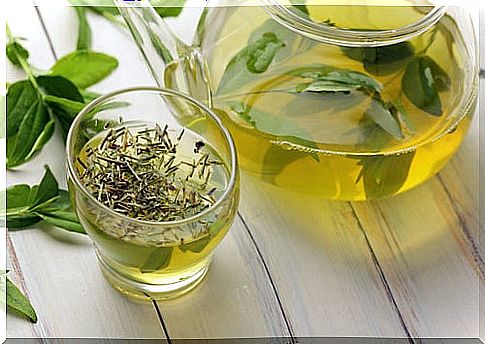
However, some people are more vulnerable to caffeine than the rest and should drink it in very small amounts or eliminate it entirely from their diet.
Such as, for example, pregnant women and those people who suffer from nervous problems, breast disorders, gastric ulcers, cardiovascular problems, high blood pressure and migraine.
And now the most important:
How can a cup of coffee in the morning and tea in the afternoon benefit the liver?
An international team of researchers led by scientists at Duke University (United States) came to the conclusion that consuming the necessary amount of tea and coffee helps to keep the liver healthy.
According to experiments carried out in animals and cell cultures, caffeine stimulates the metabolism of lipids stored in liver cells; which is vitally important to avoid the fatty liver condition (also known as non-alcoholic hepatic steatosis) which connects with chronic inflammatory processes, cirrhosis, diabetes and even cancer.
In fact, the consumption of four cups of coffee a day has been linked in several studies with obesity control and adipose tissue reduction.
Researchers think that advancement in this line of study could lead to the development of drugs that act like caffeine but eliminate its side effects.
The reality is that much-maligned caffeine could be what we need to stay young, vital and healthy. So starting the day with coffee or tea not only helps the liver but also the rest of the body to burn extra fat; which combined with a balanced diet will help transform the person into someone much more vigorous and healthy.
Other benefits and harms of coffee and tea

Much has been and continues to be research carried out on coffee, tea and health.
Therefore, we hope that in the coming years they will advance enough to show all the benefits of these products; as well as for us to learn to use them correctly.
At the moment, in addition to avoiding fatty liver, we already know that consuming the proper dose of caffeine can:
- Helping to treat certain types of headaches, bronchial asthma and gallstones.
- Prevents the formation of gallstones.
- Prevents depression.
- Improves short and long term memory; as well as decreasing the risk of suffering from Alzheimer’s disease and Parkinson’s disease.
- Decreases the risk of suffering diabetes.
- Decreases the risk of suffering breast, prostate, liver and endometrial cancers.
- Protect the heart.
- Speeds up metabolism.
- It has antioxidant effects.
- Prevents gout.
It’s wonderful to know all the properties of coffee and tea, isn’t it? But remember, anything in excess is bad for you, and drinking too much coffee or tea can lead to very serious health problems. In this sense, an excessive consumption (5-10 cups daily) can cause:
- Headache
- cardiac arrhythmia
- Anxiety, restlessness, trouble sleeping or insomnia
- Depression
- Nausea and vomiting
- tremors
- frequent urination
- Reduced bone mass density (due to low calcium absorption)
- Appearance or growth of lumps in the breasts.
- Appetite reduction (important in children)
Now we also know the consequences, so be aware of any allergic reaction such as reddening, itching or stomach problems; when you see them, seek a doctor immediately.
And now, the perfect answer:
We hope this article has been helpful in clearing up the doubts regarding caffeine consumption. Now the next time someone criticizes your cup of coffee in the morning they can respond calmly; Well you see, this coffee is what I need to keep my liver healthy, what does it do for yours?
